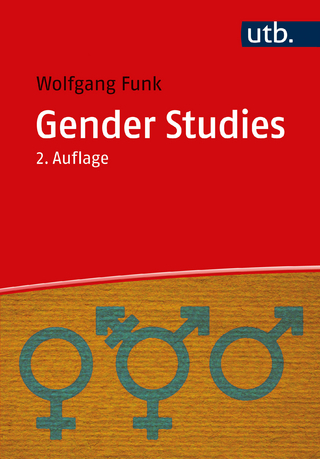
Sex, Gender and Disability in Nepal
Marginalized Narratives and Policy Reform
Seiten
2019
Routledge (Verlag)
978-0-367-35879-2 (ISBN)
Routledge (Verlag)
978-0-367-35879-2 (ISBN)
This book explores the sex lives of women with disabilities in Nepal. It shows that many women suffer more than men despite prevailing disability policies that emphasize non-discrimination against people with disabilities and argues that far from perceptions, women with disabilities are capable of leading fulfilling sexual lives.
This book explores the sex lives of women with disabilities in Nepal, showing that many women suffer more than men despite prevailing disability policies that emphasize nondiscrimination against people with disabilities. It also argues that far from general perceptions of women as asexual, women with disabilities are capable of leading highly creative and fulfilling sexual lives.
Using critical sexual theory and postcolonial studies as critical frameworks, the book investigates the narratives of authors with disabilities, exploring policy gaps and the need for supportive gender and sexual policies through the words of those affected. In particular, the book analyzes five female Nepali authors with disabilities: Radhika Dahal, Jhamak Ghimire, Sabitri Karki, Parijaat, and Mira Sahi, demonstrating the need for supportive gender policies to address the emotional and psychological needs of women with disabilities. Overall, the book argues that disciplinary discourses in practice often consider sex or sexuality as taboo, barely recognizing women in the context of marriage and family, and therefore creating gaps between policies and marginalized narratives.
This book provides important insights into sex and disability within the context of the Global South, and as such will be of interest not only to researchers working on Nepal but also to scholars across gender studies, disability studies, international development, and postcolonialism.
This book explores the sex lives of women with disabilities in Nepal, showing that many women suffer more than men despite prevailing disability policies that emphasize nondiscrimination against people with disabilities. It also argues that far from general perceptions of women as asexual, women with disabilities are capable of leading highly creative and fulfilling sexual lives.
Using critical sexual theory and postcolonial studies as critical frameworks, the book investigates the narratives of authors with disabilities, exploring policy gaps and the need for supportive gender and sexual policies through the words of those affected. In particular, the book analyzes five female Nepali authors with disabilities: Radhika Dahal, Jhamak Ghimire, Sabitri Karki, Parijaat, and Mira Sahi, demonstrating the need for supportive gender policies to address the emotional and psychological needs of women with disabilities. Overall, the book argues that disciplinary discourses in practice often consider sex or sexuality as taboo, barely recognizing women in the context of marriage and family, and therefore creating gaps between policies and marginalized narratives.
This book provides important insights into sex and disability within the context of the Global South, and as such will be of interest not only to researchers working on Nepal but also to scholars across gender studies, disability studies, international development, and postcolonialism.
Tulasi Acharya holds a PhD in Public Administration from Florida Atlantic University, Fort Lauderdale, Florida, USA. Originally from Nepal, Acharya has a master’s degrees in Women’s Studies and a degree in Professional Writing. His research interests are disability, policy, gender and sexuality, marginalized narratives, critical theory, and postcolonialism, including creative writing and translation.
1. Introduction 2. Disability and Policy Problems, Gender, and Social Construction 3. Critical Sexual Theory and Postcolonial Studies 4. Qualitative Methodology 5. Disabled Women’s Narratives 6. Assessing Narratives and Disability Policies 7. Testing the Typology of Narratives 8. Conclusions
| Erscheinungsdatum | 30.08.2019 |
|---|---|
| Reihe/Serie | Routledge ISS Gender, Sexuality and Development Studies |
| Zusatzinfo | 6 Tables, black and white; 3 Line drawings, black and white; 9 Illustrations, black and white |
| Verlagsort | London |
| Sprache | englisch |
| Maße | 138 x 216 mm |
| Gewicht | 430 g |
| Themenwelt | Sozialwissenschaften ► Soziologie ► Gender Studies |
| Sozialwissenschaften ► Soziologie ► Spezielle Soziologien | |
| ISBN-10 | 0-367-35879-4 / 0367358794 |
| ISBN-13 | 978-0-367-35879-2 / 9780367358792 |
| Zustand | Neuware |
| Haben Sie eine Frage zum Produkt? |
Mehr entdecken
aus dem Bereich
aus dem Bereich
wie sich das weibliche Gehirn jetzt verändert und Sie diese neue …
Buch | Hardcover (2023)
Mosaik (Verlag)
24,00 €
eine kritische Theorie in 99 Fragmenten
Buch | Softcover (2023)
Campus (Verlag)
40,00 €


